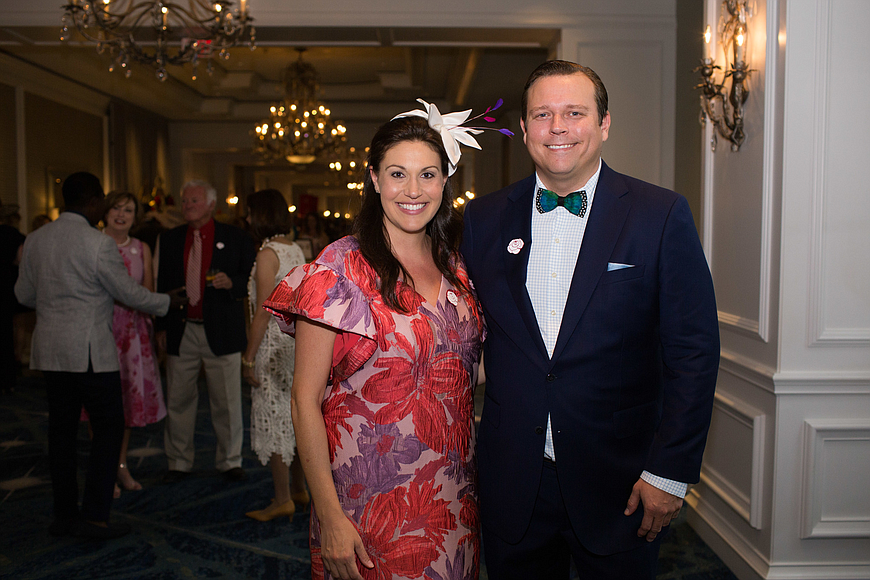- April 25, 2024
-
-
Loading

Loading

It’s the talk about town among the region’s engaged Republicans: That first-term state Rep. James Buchanan, R-Venice/North Port, is expected to vote against first-term state Rep. Will Robinson, R-Bradenton, and vote in favor of Rep. Daniel Perez, R-Miami, in an upcoming election to designate a presumptive House speaker for 2024 and 2025.
Of all the state House (and Senate) lawmakers in this region, Buchanan is the only one apparently not supporting the hometown candidate.
If you’re a loyal Republican in Sarasota and Manatee counties, it’s probably difficult not to think of this as an odd betrayal of the team … and by extension, of the citizens of Sarasota and Manatee counties.
Over the past few weeks, the behind-the-scenes talk has been full of explanations for Buchanan’s intended vote. And none of them includes anything compelling or convincing as to why Robinson should not be speaker-designate. Sen. Joe Gruters, R-Sarasota and chair of the Republican Party of Florida, says Robinson has the right stuff.
Instead, the talk has revolved around Buchanan’s ambitions.
One version has Buchanan committing his vote to Rep. Daniel Perez of Miami because he sees a better path for himself to a House leadership or House committee chairmanship position.
Buchanan declined to comment on that. See his comments in the accompanying box.
Buchanan, the talk goes, has said Robinson doesn’t have the votes to win the speakership to begin with. And if he doesn’t and Buchanan still backs Robinson, Perez could freeze Buchanan out of any leadership roles and shun Buchanan’s bills as payback for backing Robinson, thus hurting Sarasota and Manatee’s interests.
That’s the way they play in the legislative sandbox.
By backing Perez, one story goes, Buchanan contends that would be better for Sarasota and Manatee if Perez were to become speaker. Perez wouldn’t shut him out.
Of course, flip the coin. If Robinson were to win and had Buchanan’s backing, that would be good for Buchanan and the region.
The vote must be close, because Robinson hasn’t dropped out.
Robinson declined to comment. But neither Robinson nor Perez could comment on the situation anyway. Republican rules prohibit the speaker candidates from soliciting or accepting pledges from their fellow legislators and from discussing the race.
Regardless of this political gamesmanship, anyone who pays even the least bit of attention to what happens in Tallahassee knows that every community in Florida almost craves having the House speaker, Senate president or governor hail from his or her community.
Just look at what happened in the most recent session. It wasn’t coincidence or dumb luck that the Legislature earmarked $5 million for operational support for the University of South Florida Sarasota-Manatee campus. You can be sure Senate President Bill Galvano, R-Bradenton, had a hand in that.
Or go back to when Sen. John McKay was Senate president. How do you think the Legislature secured the future funding and upkeep of the John and Mable Ringling Museum of Art when it adopted legislation designating the museum to fall under the auspices of Florida State University?
Former legislators will tell you the Senate presidency or House speakership are worth about $100 million over a four-year period.
Even if at this point Robinson may be a few votes shy of winning, it still would seem that loyalty to the hometown team would be a more statesmanlike stand than ambition.
Indeed, this reminds us of two things:
One is that code of virtue: Do the right thing, the right way, for the right reasons. Be the better man.
The second is the advice that a Tallahassee sage gave a decade ago to an aspiring state lawmaker.
When former state Sen. Garrett Richter of Naples decided he wanted to serve in the Legislature, he traveled to Tallahassee for the advice of the late Cliff Hinkle, a well-known Tallahassee public servant, investor, banker and wise observer of state politics. Hinkle told Richter:
There are two reasons people want to serve in the Legislature. One is to do something good for others and the state; the other is to make something of themselves. Hinkle told Richter: If you’re running for office for the latter, you’re doing it for the wrong reason. You should stay home.
Voters see this. And voters have long memories about their local, elected politicians. They remember the politician who helped them. They remember the politician’s vote on an issue that affected them personally. They remember whether the politician is in it for himself or for the greater good.